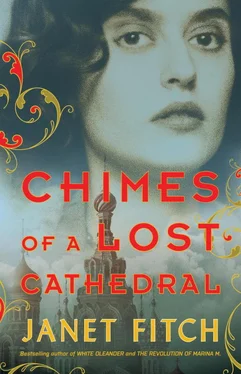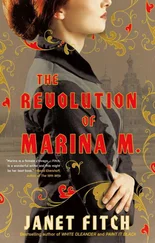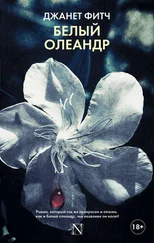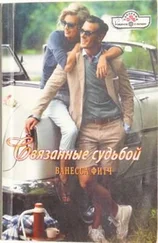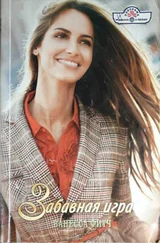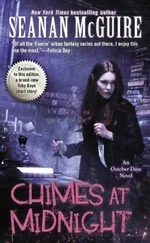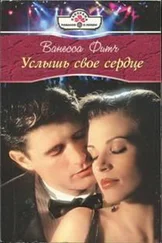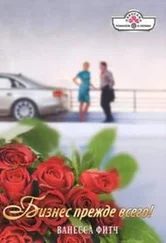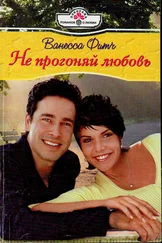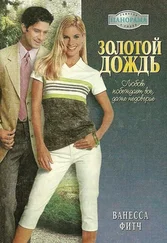I noted the Petrocommune shipping clerk stride past, determined to ignore the raft of orphans trailing behind him. Petrocommune —why hadn’t I thought of that? The state’s food distribution network. They would receive regular rations if anyone did, and all they could steal besides. I ran after him, trying to joggle Iskra and her poor arm as little as I could. “Hey! Comrade! Is there work in your office? I have my papers. How would I go about it?”
“Go to Smolny,” he said, not slowing his pace or turning his head to regard me. “Talk to Gogilevsky. Tell him Strumlin sent you. And God help you.” He cast a glance at me briefly. “That was an evil man.”
He knew. He knew! I wanted to thank him, but he had lost me in the crowd. Strumlin. Gogilevsky. That’s exactly what I would do. But today, I wanted to show Petrograd to Iskra. I was hungry for the statues, the red granite of its embankments. I wanted to show my daughter this empress of mirrors, its beauty and poetry, the reason I had dragged her all the way from Kambarka.
We emerged into the heat and glare of the afternoon, and I gazed across the great expanse of Znamenskaya Square. How quiet it was. Where had all the people gone? Here, where the Volynskys had once wheeled and slashed, where the soldiers had fired on the demonstrators in ’17, I could still hear the gunfire, smell the sulfur… where the student had bled in my arms, and died. But only a single cart traversed the enormous open space. Had everyone perished in some plague?
I touched a wall, warm from the sun. The stones were still pockmarked from those gun battles. He’s dead, Marina. Let’s go. Running with Varvara across the square, where we crouched with the other patrons behind the closed curtains of the restaurant, while braver people hauled the wounded away and left the dead.
Now people walked around me, as if I were a stone in a river, no one said anything as my tears flowed. I was no longer a girl whose appearance drew attention, just another weathered woman in a faded kerchief newly arrived from the country, holding an infant, weeping next to a wall. Where was everyone? Weeds grew in the roadbed in what had been the busiest square in Petrograd. Not a tram in sight, not an automobile, just a few ragged pedestrians, a bony horse pulling a two-wheeled cart. One of the buildings had fallen in, leaving a mark like a missing tooth in a familiar face. Seeing Znamenskaya Square like this was like greeting a father or a brother after a war—the battles had left their mark.
The passersby tended to their business, walking wherever they liked, even down the middle of Nevsky Prospect. I kept touching walls. How the city had changed. So many broken windows, street doors nailed shut with all kinds of junk. I knew every shop, the painted signs boasting luxury businesses that no longer existed. All those clerks and businessmen and women in the latest hats, restaurants and shops, dentists and doctors on the floors above. Vanished, leaving only Blok’s light blue vault untouched overhead. I caught my breath at a flash of seagulls, snik snak, across the canvas of the sky. Iskra gazed around her, bobbleheaded and astonished, her curls sweaty.
I paused at the corner of Liteiny Prospect, and pointed up to the curved windows at the top floor. “Mama’s friend Auntie Mina lives there.” I imagined her up there right now, in her father’s studio photographing some commissar’s girlfriend, her mother getting supper ready—no canteens for them. If Sofia Yakovlevna was still alive. I felt like a ghost. Perhaps in another time stream we were all still sixteen, sitting on the wide window seat up there and sharing a secret, Seryozha sewing a patch for a dress or in the darkroom with Solomon Moiseivich, Dunya in long plaits, Shusha banging away on that old piano. How angry would Mina still be? But who could resist Iskra Antonina Nikolaevna Shurova?
I imagined I smelled burning rubber from the February 1917 barricades. And the flower shop—from my dream of the little boy, who turned out to be this little apple! I would show Iskra Furshtatskaya Street. The broad parkway—I wondered what it would look like now, when there was grass growing even on Nevsky Prospect. I smiled to think what Basya would say if I showed up at the flat with my kerchief and bast shoes. I’m sure she’d love to see how the mighty had fallen. She’d probably give me some wretched hole of a room in our old servants’ wing, just so she could bask in my downfall.
But I had papers now. I was the proletarian Kuriakina . I wouldn’t have to submit myself to that humiliation.
Here was the Fontanka, its quiet looking-glass reflection. I held Iskra up so she could see the river, so gay after the long days on the train. Her eyes lingered on the shifting waters, the pastel buildings admiring themselves in the water—pistachio, peach, butterscotch. Iskra had never seen such marvels. She had only experienced earth and trees, fields and that eternal train. She gazed down into the water, exceptionally clear these days—no sewage to sully its surface, no oils from boats—no boats. No barges. It was the absence of human beings—the city was returning to its pristine state. No factory smoke smeared the crystalline air. I could see, upriver, the yellow glow from the Sheremetev Palace, and wondered if Akhmatova still lived there. Had she stayed, weathering the storm at anchor? Or had she returned to her childhood home in Tsarskoe Selo, or headed south in search of food? Thought I could not imagine her leaving, not after having written, I am not one of those…
The massive bronze horses of the Anichkov Bridge still fought their sandaled grooms as it passed over the Fontanka. I knelt so Iskra could inspect the mermaids and seahorses of the bridge’s ironwork. Below us, the waters shot diamonds into our eyes. Metal and stone, water—these things at least hadn’t changed, nor did the passion of horses that could never be tamed, no matter how hard the grooms tried. We still flung ourselves to the ground and trampled our saner nature.
Farther on, Eliseev’s fine grocer’s still stood, with its art nouveau mirrors encased in grime, where once a refrigerated counter stocked every grade of caviar, where we bought our Pears soap and imported wine. Now it was a dingy ration point—Distribution Center No. 3—while across Nevsky, Catherine the Great rose on her bronze pediment, sheltering her courtiers in her bell-like skirts. The weeds sprung up like a field before the classical pillars of the Alexandrinsky Theater, the tree boughs tickled with yellow.
Iskra gazed at it all in green-eyed amazement. How could I have ever left her behind in the village? “See those arcades?” I pointed out Gostinny Dvor, its double rows of empty shops. “That’s where your grandmother shopped. And this is Nevsky Passazh.” The entryway to the luxury arcade boarded up. The perfumer, the milliner… Zimniye Nochi. Winter Nights. I’d had a Zimniye Nochi baby blanket from Orenburg, so warm and light it was like sleeping on a cloud. Iskra would never know a blanket like that. I brushed the soft hair from her forehead. Well, what difference did it make if she never had an Orenburg blanket and soap from Eliseev’s? She would have Petersburg.
We continued past the Singer Building, and Kazan Cathedral—site of my terrifying dream, the white wolf stalking me in the forest of its columns. A pang of fear shot through me. The Archangel would be stalking me here. If you don’t like wolves, stay out of the woods, his man Akim had once said. I would try, but these were my woods as well. And here was the Grand Hotel Europa, site of that last ridiculous lunch with my great-aunt before the February Revolution, a string quartet playing Bach while we ate our soup. It seemed like a century ago. Now a number of ragged children played under the hotel’s porte cochere. It must be some sort of school or orphanage now. The forecourt on Mikhailovskaya Street was cracked, no fine automobiles lined up there anymore, no carriages. I could only imagine what the hotel’s lobby looked like, that patrician dining room. Was this all that was left of Petrograd—soldiers and abandoned children? I kissed Iskra’s sweaty forehead. Don’t worry. We’re going to be all right.
Читать дальше
